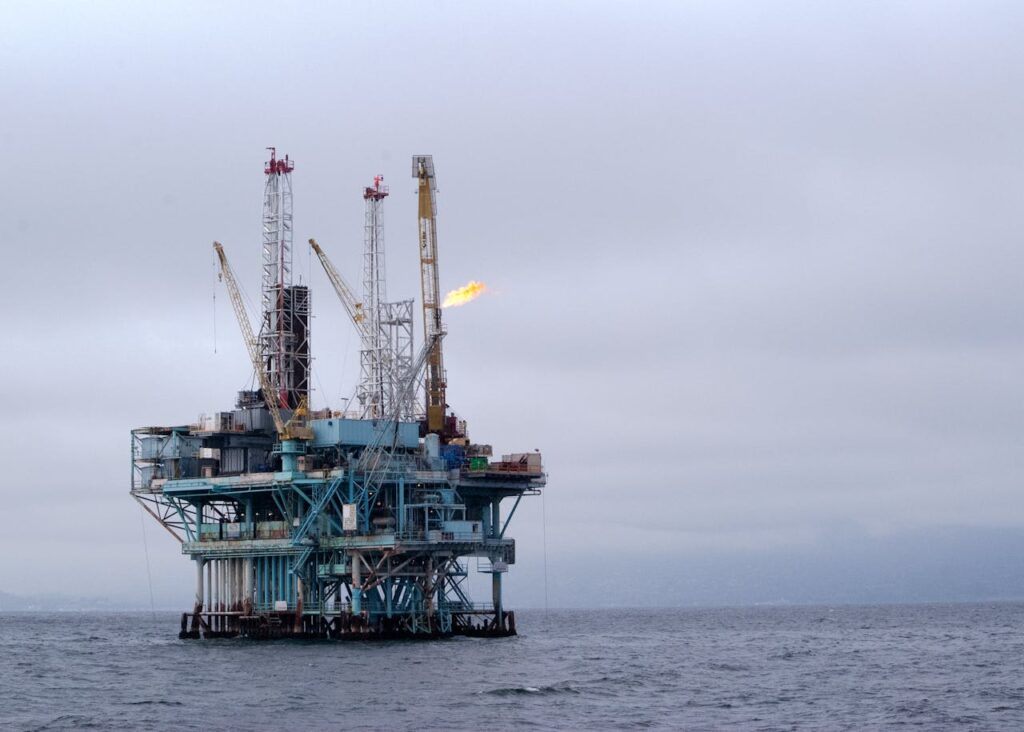Working on an offshore oil rig is one of the most hazardous occupations in the world. These massive platforms situated miles off the coastline are ground zero for numerous risks – ferocious weather, fires, explosions, blowouts, and equipment failures. Despite stringent safety regulations, accidents are far too common, often resulting in catastrophic injuries or fatalities.
When the unthinkable occurs, oil rig workers need legal representation from maritime attorneys well-versed in the intricate laws governing offshore injuries. Oil rig injury lawyers play a vital role in ensuring these workers receive the compensation they deserve for their suffering.
The Perils of Offshore Work

Oil rigs are highly complex operations involving heavy machinery, volatile chemicals, and extreme conditions. Workers can be hundreds of miles away from shoreside medical facilities when disaster strikes. Some of the major hazards they face include:
- Fires and Explosions: A small spark can ignite gases or vapors, causing catastrophic blazes or detonations that injure or kill workers through burns, falling debris, or structure collapse.
- Blowouts: Loss of control over the high-pressure oil and gas reservoir can force explosive volumes of hydrocarbons up the wellbore, destroying the rig.
- Equipment Failures: Malfunctioning or improperly maintained cranes, lifts, rigs, and other machinery pose striking and crushing hazards.
- Harsh Environments: Extreme heat, cold, storms, heavy seas, ice, and cramped living quarters create grueling work conditions.
- Hazardous Materials: Exposure to toxic gases, chemicals, radiation, and carcinogens can cause poisoning, burns, and respiratory issues.
Injuries from these incidents range from burns, crush injuries, and broken bones to brain trauma, loss of limbs, permanent disability, and death. Survivors may face astronomical medical bills, lost income, and long-term care costs. This financial devastation is where oil rig injury attorneys can make a difference.
Maritime Laws Protecting Offshore Workers
Unlike land-based occupations, offshore oil rig work is governed by a complex web of maritime and admiralty laws rather than conventional workers’ compensation systems. These include:
- The Jones Act: This federal law allows injured “seamen” to sue their employers for compensation due to negligence causing injury. Oil rig workers may qualify as seamen depending on their job duties.
- Longshore and Harbor Workers’ Compensation Act: This provides medical bills and disability coverage for land-based maritime workers like longshoremen, harbor workers, and certain offshore employees.
- Outer Continental Shelf Lands Act: Extends workers’ compensation benefits to those disabled by injuries occurring on the Outer Continental Shelf.
- Death on the High Seas Act: Allows families of offshore workers killed in incidents beyond three nautical miles from shore to sue for damages.
- General Maritime Law: A body of laws and legal principles governing maritime cases from maintenance and cure to products liability claims.
Maritime injury cases require specialized attorneys who understand the nuances of these statutes and how they apply to each client’s circumstances. Failing to adhere to them correctly can undermine or even invalidate legitimate claims.
Role of Oil Rig Injury Lawyers

The primary duty of an oil rig injury attorney is to advocate for the rights and interests of injured offshore workers. This involves:
Investigating the Accident: Lawyers will launch an exhaustive inquiry into the root causes, studying evidence, reviewing records, and consulting experts to establish liability.
Determining Applicable Laws: Based on the location, nature of the incident, and other factors, they identify which maritime laws allow the worker to pursue compensation from employers, rig owners, or other entities.
Calculating Damages: Attorneys tally the full scope of damages their client has suffered, including current and future medical costs, lost wages, disability, pain and suffering, and other losses.
Negotiating Settlements: Many cases are resolved through negotiations with insurance companies and employers, with lawyers leveraging the threat of litigation to maximize payouts.
Filing Lawsuits: If pre-trial talks break down, maritime attorneys will file suit in applicable state or federal courts, skillfully presenting evidence and legal arguments to judges or juries.
Preserving Appeals: Complex maritime cases can involve multiple levels of appeals if initial verdicts are unsatisfactory. Lawyers safeguard clients’ rights for further legal recourse.
Ensuring Proper Care: Throughout the process, clients depend on counsel to verify they are receiving appropriate medical treatment and other assistance during their recovery.
Given the enormous stakes involved, from financial recovery to holding negligent parties accountable, world-class representation is critical. The best oil rig injury law firms leverage their expertise, resources and persistence to achieve favorable outcomes.
Choosing An Offshore Injury Attorney
With so much riding on obtaining skilled legal counsel, offshore workers should carefully vet prospective maritime lawyers’ credentials, including:
Experience: Prioritize firms with a long track record of oil rig injury cases, as maritime litigation requires specialized knowledge and skills honed over years of practice.
Resources: Complex offshore cases necessitate substantial financial resources to investigate incidents, hire expert witnesses, and battle against deep-pocketed defendant parties.
Results: Review case results, verdicts, and settlements to gauge a firm’s performance advocating for offshore workers’ rights and maximum recoveries.
Reputation: Respected lawyers should have endorsements from legal organizations and peers, along with positive client testimonials and ratings.
Contingency Fees: Reputable maritime firms work on contingency, charging fees only if they recover compensation for their clients.
Accessibility: Clients want attorneys who are responsive, communicative, and available as needed throughout lengthy cases.
By conducting thorough research, offshore workers can identify and retain highly qualified oil rig injury lawyers best equipped to successfully litigate their claims.
Frequent Oil Rig Injury Questions
What types of damages can I recover with an offshore injury claim?
Potential compensation includes economic damages like medical costs, lost income, disability losses, and non-economic damages for pain and suffering. Some maritime laws also allow recovery of legal fees and punitive damages against grossly negligent parties.
I was injured aboard a jackup rig in coastal waters. What laws apply?
The applicable statutes depend on your official crew status and where the incident occurred. The Jones Act may cover injuries to recognized seamen in navigable waters, while the LHWCA addresses injuries to certain offshore oil field personnel within three nautical miles offshore.
How long do I have to file an offshore injury lawsuit?
The statute of limitations varies across maritime laws. For example, Jones Act claims must typically be filed within three years of the incident, while the LHWCA allows just one year in most cases. An attorney can evaluate appropriate timelines.
My employer wants me to accept a quick settlement. Should I?
Never agree to any settlement without experienced legal advice. Oil companies frequently try pushing lowball offers to avoid larger payouts victims are rightfully owed. Qualified offshore lawyers analyze if offers justify your losses.
How much does hiring a maritime injury attorney cost?
Most attorneys work on contingency, collecting fees from case awards instead of upfront costs. Free consultations are also standard to evaluate cases before taking them on.
FAQs
What is an oil rig injury lawyer?
An oil rig injury lawyer is a type of maritime attorney who specializes in representing offshore oil and gas workers who have been injured on the job. These lawyers have extensive knowledge of the complex laws and regulations that govern offshore operations, such as the Jones Act, the Longshore and Harbor Workers’ Compensation Act, and the Outer Continental Shelf Lands Act.
What types of cases do oil rig injury lawyers handle?
Oil rig injury lawyers handle a wide range of cases, including:
-Injuries resulting from explosions, fires, or blowouts
-Injuries caused by equipment failures or malfunctions
-Injuries sustained due to unsafe working conditions
-Injuries caused by exposure to hazardous substances or chemicals
-Injuries resulting from slip and fall accidents
-Injuries caused by negligence on the part of the employer or third parties
Why do I need an oil rig injury lawyer?
Offshore oil and gas operations are governed by a complex web of federal and maritime laws, making it difficult for injured workers to navigate the legal system on their own. An experienced oil rig injury lawyer can help ensure that you receive the compensation you deserve for your injuries, including medical expenses, lost wages, and pain and suffering.
How do I choose the right oil rig injury lawyer?
When choosing an oil rig injury lawyer, it’s important to look for someone with extensive experience in maritime law and a proven track record of success in handling offshore injury cases. You should also consider the lawyer’s reputation, communication skills, and accessibility.
What compensation can I receive for an oil rig injury?
The compensation you may be eligible to receive for an oil rig injury depends on the specific circumstances of your case and the laws that apply. Generally, you may be entitled to the following types of compensation:
-Medical expenses: This includes the cost of hospitalization, surgery, rehabilitation, and ongoing medical treatment.
-Lost wages: If your injury prevents you from working, you may be able to recover compensation for the wages you have lost and the future earnings you may lose as a result of your injury.
-Pain and suffering: You may be entitled to compensation for the physical pain and emotional distress caused by your injury.
-Disability: If your injury has left you with a permanent disability, you may be able to receive compensation for the loss of your ability to work or enjoy life as you once did.
-Wrongful death: If your loved one was killed in an oil rig accident, you may be able to file a wrongful death claim to recover compensation for funeral expenses, lost income, and other damages.
How does the claims process work?
The claims process for an oil rig injury can be complex and may vary depending on the specific laws that apply to your case. Generally, the process involves the following steps:
1. Seek medical attention: Your first priority should be to seek immediate medical attention for your injuries.
2. Report the injury: Report the injury to your employer as soon as possible.
3. Gather evidence: Collect any evidence related to the accident, such as photographs, witness statements, and medical records.
4. Consult an attorney: Contact an experienced oil rig injury lawyer to discuss your case and determine the best course of action.
5. File a claim: Your attorney will help you file a claim with the appropriate parties, such as your employer’s insurance company or the responsible third party.
6. Negotiate a settlement: Your attorney will negotiate with the insurance companies or other parties to try to reach a fair settlement for your injuries.
7. File a lawsuit: If a settlement cannot be reached, your attorney may file a lawsuit on your behalf.
It’s important to note that there are strict deadlines for filing claims under the various maritime laws, so it’s essential to act quickly and consult with an attorney as soon as possible after your injury.
Conclusion
Working on an offshore oil rig is a dangerous and demanding job, and when accidents occur, the consequences can be devastating. Oil rig injury lawyers play a crucial role in protecting the rights of injured workers and ensuring that they receive the compensation they deserve. If you or a loved one has been injured in an oil rig accident, it’s important to seek the assistance of an experienced maritime attorney who can navigate the complex legal landscape and fight for your best interests.
